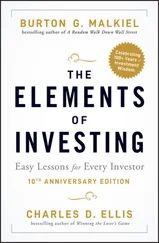On the television screen, the glorious teenage bride gazed into the face of her handsome husband, her eyes dazed with love. Victor was leaning down, gently kissing Valerie’s lips, touching her cheek with his.
“Great wedding gown,” Mary murmured. “Nobody can touch Givenchy.”
“Victor loves Givenchy,” Valerie replied automatically, remembering as if it were a moment ago the touch of Victor’s lips on her own.
“Still,” the narrator continued, “as visible as Victor Penn has always been, his origins remain unknown. Although it is thought that he is English, there is no record that he ever attended any public school or university in England. His acceptance into the banking and social circles of London seems to have been on the basis of his own personal charm and lavish entertaining. Once he had established his contacts, Victor Penn moved quickly to consolidate his position in the banking world.”
“This is absurd,” Valerie said indignantly. “Of course Victor is English. He was educated in Switzerland, just like the children.”
“Oh, they’ll probably figure that out by tomorrow,” said Mary, hoping that would turn out to be the least of their worries.
“Penn International, the umbrella for the vast international Penn empire, has never released a biography of its dashing chairman of the board, who also holds the title of chief executive officer. Nor has Penn ever agreed to be interviewed unless it has been in connection with one of the charities he supports. In short, Victor Penn has pulled off the impossible: simultaneously becoming the most visible of men and, at the same time, shielding himself in secrecy much like the late Howard Hughes.”
The narrator spoke briefly of the move Victor and Valerie Penn had made some years earlier to New York City before finally settling on their hundred-acre estate in Beverly Hills. “Raymond Penn, older brother and, it is believed, second in command after Victor Penn, is refusing comment through his public relations spokesman in London.” The limousine turned into the entrance of the estate as reporters, correspondents, and television crews surrounded the car, pressing against its fenders, thrusting microphones against the bulletproof glass windows. The chauffeur pressed the buzzer that opened the huge wrought-iron gates, and in a moment the car was gliding through the short underground tunnel with the electronic monitoring system screening all entering vehicles for weapons or explosives. Then it was onto the long winding drive that led to the graceful mansion itself.
Inside the usually tranquil house was pandemonium. Gregson, the impeccable butler who ran the house and its staff of twelve, hurried down the hall toward them. “Dr. Feldman and Mr. O’Farrell are in the music room, madam,” he said to Valerie. “I do hope none of this turns out to be true.”
“Thank you, Gregson,” said Valerie. “It is untrue. All of it.”
In the music room, with its framed, autographed scores and letters signed by Beethoven, Brahms, Mozart, and Chopin, a six-foot television screen displayed the mob scene outside the estate. Valerie’s doctor, Elliott Feldman, a tall, muscular, fair-skinned man in his early forties, sat in one of the lounge chairs. John O’Farrell, Victor’s attorney, was there too, in his lawyer’s uniform of dark gray suit, blue shirt with a white collar, and a red patterned tie. Kyle Jones, Valerie’s live-in piano teacher, was perched on the piano bench in front of the Steinway. The two visitors leaped to their feet as Valerie and Mary entered the room. Kyle, looking exhausted, lifted a languorous hand.
“Valerie,” said the doctor, as he took her hand and led her to an overstuffed, chintz-covered chair, “what a shock for you.”
“We’re all praying this isn’t true,” John O’Farrell added. “I’m sorry you’re going through this.”
“Thank you,” Valerie said in a small voice, her chin high.
“Where does everything stand?” asked Mary, casting a sympathetic glance toward Valerie.
“We don’t know any more than you do.” John O’Farrell shrugged. “The public relations departments in the various cities are dealing with the press. Raymond has called several times.”
“To talk to me?” Valerie asked with a shudder.
“No, to talk to me,” said John. “We’re to talk to nobody, and he’ll be in touch.”
“Do the children know?” Valerie asked suddenly. “Did Raymond say anything about the children?”
“Only that the children are not to be called until there’s something more definite.”
“But they’ll have heard. Why can’t I talk to my own children?”
“It’s the middle of the night in Switzerland,” the attorney said kindly. “I’d say it’s probably better to do what Mr. Raymond Penn wants, at least for the moment.”
“But … what do I do now?” Valerie asked.
“I guess what everybody else in Los Angeles is doing,” said the attorney. “We just sit here in front of the television set and see what happens.”
It was another hour before the next news update.
A disembodied voice was heard as the screen showed a blur of green. “We’ve just been able to confirm that the plane that crashed in Mexico this afternoon is the 727 belonging to Penn International. The Penn International logo is clearly visible on the side of the plane, according to the reports we are just receiving. As far as we can see, there are no signs of life.”
With a little sigh, Valerie crumpled to the floor.
Elliott Feldman was instantly at her side, leaning over to pull her up. Valerie’s eyes opened vacantly.
“We’ll get her up to bed and I’ll give her a shot,” he said. “I have the feeling it’s going to get worse.”
“You have no idea,” John O’Farrell said gloomily. “I better get on the phone to Raymond and see what he wants us to do.”
At the piano, Kyle picked out a few bars of Chopin, his long white fingers with their bitten nails as tentative on the keys as if playing for the first time.
3
Valerie leaned against Mary as the two women walked slowly up the staircase, which had never seemed so long and winding.
“Just a few more steps,” Mary said, her arm around Valerie’s waist.
“I’m going to call the children anyway,” Valerie panted. “If they’ve heard anything, they’ll panic.”
“Let’s get you into bed,” Mary said, pushing open the door that led into Valerie’s suite.
The living room was large, its dimensions extended by mirrored walls at each end. Fine Louis XVI pieces, a gilt-wood table and four fauteuils upholstered in pink silk, formed a seating arrangement, while a Chinese tortoiseshell-inlaid lacquer cabinet and a Louis XV chinoiserie silk screen further ornamented the magnificent room. A huge Bonnard hung over a marble fireplace. Silk draperies of a pink so pale it was almost white covered the doorway that led to Valerie’s bedroom. On the nine-foot concert grand, the twin to the Steinway in the music room downstairs, a crystal vase displayed a vast spray of pink-throated cymbidia. In an alcove with a view of the grounds from its curving windows were a table and two chairs where Victor and Valerie had their morning orange juice and coffee following the nights Victor stayed with her.
For her bedroom, Victor had selected white carpeting, with white silk upholstered walls. The chairs and sofa in the sitting area were upholstered in pale peach moiré. On the coffee table in front of the sofa was a small sculpture by Rodin and two newly acquired Fabergé eggs. Later, they would join the main collection in the drawing room down-stairs. The bedspread was the pale peach of the upholstered furniture, and over the headboard was a large Degas painting of a ballerina tying a shoe. Victor had surprised Valerie with the painting, a gift, he said, because the dancer reminded him of her. The fireplace chimneypiece was white marble tinged with peach.
Читать дальше












